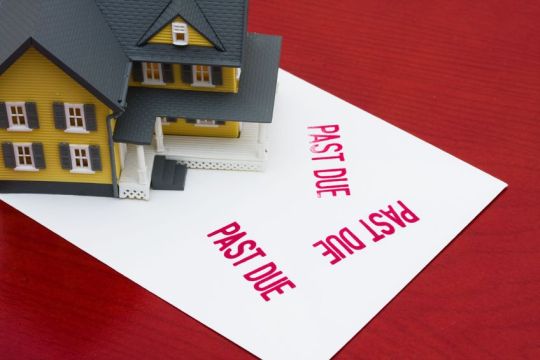You’re Missing Mortgage Payments. Now What?

Paying your mortgage can be stressful to most, but what happens when your mortgage payments become late or you missed a mortgage payment completely? Missing mortgage payments can be terrifying. Perhaps your family is having trouble making your monthly budget because someone has lost their job. Maybe one person has gotten sick, so your paychecks are paying for co-payments or medications. Maybe you had a fixed mortgage rate and now it’s adjustable. Or maybe you are just facing some other financial situation that you just can’t help.
What Kind of Mortgage Are you Paying?
So, what kind of mortgage do you have? Do you even know? You should be able to tell just by reading the documents you received when you bought your home.
There are so many types of mortgages out there and it is very important to know which one you hold. Here are a few examples:
- Fixed Rate Mortgages: A mortgage in which the interest rate remains the same throughout the entire life of the loan is a fixed rate mortgage. These loans are the most popular ones, representing over 75% of all home loans. They usually come in terms of 10 years, 15 years, and 30 years, with the 30-year option being the most popular among people. While the 30-year option is the most popular, having a 15-year mortgage will build equity much faster. The biggest advantage of having a fixed rate mortgage is that the homeowner knows exactly when the interest and principal payments will be for the length of the loan. This allows the homeowner to budget easier because they know that the interest rate will never change for the duration of the loan.
- An Adjustable Rate Mortgage (ARMs): These are mortgages that have adjustable rates from the beginning, which means your payments can and will constantly change over the loan period.
- Hybrid ARMs: Mortgages that have fixed payments for a few years, and then turn into adjustable loans. Some are called 2/28 or 3/27 hybrid ARMs: the first number refers to the years the loan has a fixed rate and the second number refers to the years the loan has an adjustable rate. Others are 5/1 or 3/1 hybrid ARMs: the first number refers to the years the loan has a fixed rate, and the second number refers to how often the rate changes. In a 3/1 hybrid ARM, for example, the interest rate is fixed for three years, then adjusts every year thereafter.
What Happens When You Start Missing Mortgage Payments
When you originally applied for your mortgage, you probably verified asset reserves to prove to the bank that you could afford to pay the loan for a certain period of time, even if you failed to receive additional income for some period of time.
Once you miss your first payment, the bank or lender will hit you with a 30-day late notice and a few automated phone calls. At this point, your credit will take a huge hit, and a representative from the bank or lender will call you. This is the time to discuss with the bank or your loan servicer a forbearance plan to resolve the missed payment and get you back on track. This is basically a special payment plan the bank/servicer sets up with the borrower to either lower payments or suspend payments so you can continue paying your mortgage.
If you fail to speak with your lender or servicer, and continue to miss mortgage payments, you will be hit with a 60-day late, followed by a 90-day late. That will impact your credit pretty significantly, and any chances of refinancing or seeking a forbearance plan may be lost. Again you will receive notices in the mail and phone calls.
Once you hit the 90-day late mark, the bank or lender will send a Notice of Default (NOD). The NOD essentially states that you have 30 days to make the payment current, which means you must pay in full all late payments and fees, appear in court, or face the risk of a foreclosure. If 30 days go by and you fail to appear in court or make your payments current, the court can schedule an auction to sell your home within 7 days.
If the auction ends without a buyer, the bank or lender will gain ownership and likely perform maintenance on the property, clear up any title issues, then put it on the market.
After paying legal fees, foreclosure fees, late fees, and losing your home, you’ll be hit with a huge ding on your credit report. A foreclosure will drop your credit score dramatically and prevent you from borrowing from A-paper banks for many years to come.
Remember, your home is technically not yours until you paid that mortgage in full.
You Have Options
If you are missing mortgage payments, now is the time to consider your options. And you have plenty of them such as:
- Reinstatement
- Repayment plan
- Forbearance
- Loan modification
- Selling your home
- Bankruptcy
- Short Sale
- Deed in Lieu of Foreclosure
Don’t wait until it’s too late to get out of a bad real estate situation. Know your options and use them while you can before your lender forecloses on your home.